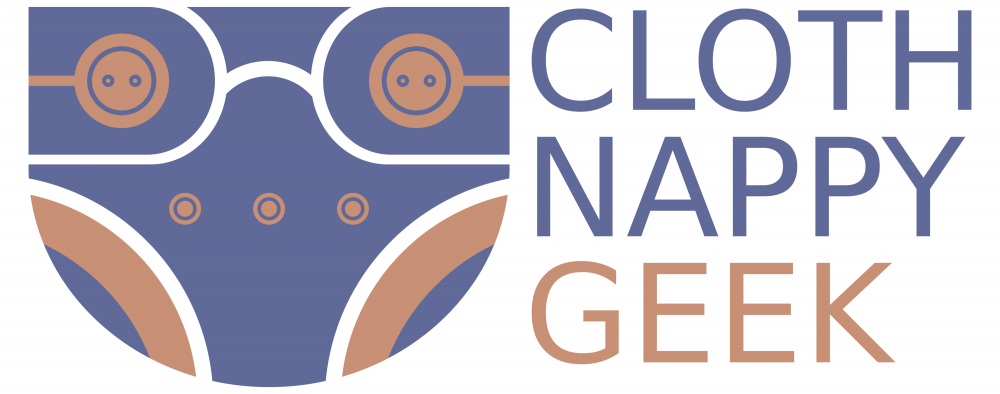After purchasing (or hiring) cloth nappies you need to factor in the cost of washing them. Are they really cheaper than disposables?
Article updated October 2022. Energy and water rates correct at time of writing but may have increased / decreased over time. Rates can also vary significantly by region. Standing charges are not factored in. Figures provided are indicative only. Energy and water costs for running washing machines are also dependant on the exact programme options selected, and the weight of the laundry.
The Ofgem electricity price cap is currently 34p per kWh. Energy costs are based on this rate. If you’re lucky enough to have a fixed tariff then your costs may be lower.
Water rates calculated by taking an average of three randomly selected water companies (Thames Water, Severn Trent, United Utilities) using April 2022 rates. If you are not on metered water you can discount these costs.
| machine | Programme | Energy usage (kwh) | Energy cost (pence) | Water usage (Litres) | Water cost (pence) |
|---|---|---|---|---|---|
| Indesit (F-rated) 6kgs | Rinse cycle (36 minutes) Cottons (heavy soiling) 60c | 0.1 1.04 | 3 35 | 33 48 | 9 13 |
| Zanussi (D-rated) 7kgs | Unable to find data for rinse cycle Cottons 60c | 0.1 1.10 | 3 37 | 56 80 | 15 22 |
| Hoover (rated) 8kgs | Rinse cycle (28 minutes) Cottons 60c with extra rinse | ||||
| Samsung Ecobubble (B-rated) 8kgs | ‘Quick 15’ (with 5 rinses, energy usage does not include the final two rinses which need to be manually selected). ‘Mixed load’ is also a popular prewash option but I am unable to find energy and water usage figures for this. Cottons 60c plus Bubblesoak | 0.015 – 2.192 | 0.51 – 75 | 43 – 127 | 12 – 35 |
| Miele (A-rated) 9kgs | Separate rinse cycle (28 minutes) Cottons 60c with Stains and Water+ | 0.1 1.3 | 3 44 | 45 91 | 12 25 |
Detergent costs
Costs correct as of May 2022. Assumes you’re purchasing large pack sizes, but without special offers. Doses are for heavy soiling. For larger drum sizes you may need more detergent than is recommended below.
Using detergent in your prewash, which I don’t recommend as it is unnecessary, will increase your detergent costs.
| Soft water | Medium water | Hard water | |||
| Detergent / recommended dose for drum size | |||||
| Fairy 6kgs | 37p | 37p | 43p | ||
| Persil 6-8kgs | 25p | 29p | 34p | ||
| Tesco non-bio 6kgs | 8p | 10p | 11p | ||
| Bambino Mio Miocare 4.5kgs (full wash according to packaging) | 40p | 48p | 72p | ||
Your costs
To find your approximate cost of washing – select the washing machine closest to your model machine, take the energy number (and the water if applicable and add together), select your detergent and add that. Divide by the average number of nappies you wash.
So for me, my machine is the Miele (47p for both cycles), I have unmetered water (0p), and use Tesco non-bio (11p). A nappy wash costs me approximately 58 pence. I use around 6 nappies per day and wash every other day, so the cost of washing is 5p per nappy. (58p divided by 12). If I had metered water this cost would rise to 8p per nappy.
The cost of disposables
If you use an average of 6 nappies per day (so 12 over a 48 hour period) you would expect to pay anywhere between 72p to £3.72 depending on brand etc.
Prices correct as of October 2022. Tesco nappies (size 4) 6p each. Pampers Active Fit (size 4) 30p each. Kit and Kin eco disposables (size 4) 22p each. Naty eco disposables (size 4) 31p each.
Add another 28p to these numbers to account for one budget nappy sack per change, plus 8 budget disposable wipes (one per change plus a couple of extra for a dirty nappy each day).
So using disposable nappies and wipes would cost around 8p per nappy if you used the cheapest brands available in Tesco.
Summary
With the rises in energy costs, the day to day usage of cloth nappies is comparable to using the lower priced disposable alternatives. However if you’re on unmetered water, a fixed lower-rate energy tariff, or have your own energy supply (i.e. solar panels) then using cloth nappies will be cheaper than disposables.
